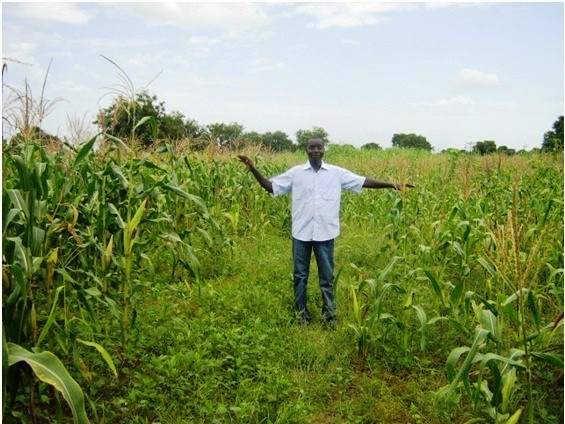
Agricultural producers in Senegal are finding that small improvements in their farming techniques can yield big benefits when it comes to protecting their livelihoods against risk during growing season.
Conservation farming, which has been promoted in Senegal by USAID since 2009, is based on the premise of “doing more with less.” Farmers till and plant only a portion of their land each season, growing crops in small, evenly-spaced basins rather than plowing entire fields. Not only does most of the land remain undisturbed, but this technique reduces soil erosion and run-off during rainfall, helping the land to retain both water and nutrients.
Despite serious drought conditions during last year’s agricultural season, Senegalese cultivators who used conservation farming techniques increased their yields, helping to ensure the food security of their communities while also earning higher profits.
“Through conservation farming, village farmers have seen yields superior to those obtained using traditional methods,” says Falilou Faye, regional director of rural development in the community of Kaolack, where the technique is being applied. “Despite the low rainfall, yields have actually risen dramatically in places.”
In the 2011 season, conservation farming helped millet and maize yields increase between 49 percent and 71 percent, according to the Senegal Rural Development Agency. As news spreads about the success and simplicity of conservation farming, demand has risen for training and tools to further spread its use. Several USAID projects in Senegal, including agriculture and natural resources management activities, promote the use of conservation farming. USAID also conducts conservation farming demonstrations at agricultural fairs for farmers and technicians.
USAID/Senegal Mission Director Henderson Patrick commented on the success of the approach: “Increasing resilience and production in an area susceptible to drought aligns with the core tenets of our Feed the Future strategy. The results demonstrated by conservation farming show how simple technologies can make a real difference.”







Comment
Make a general inquiry or suggest an improvement.